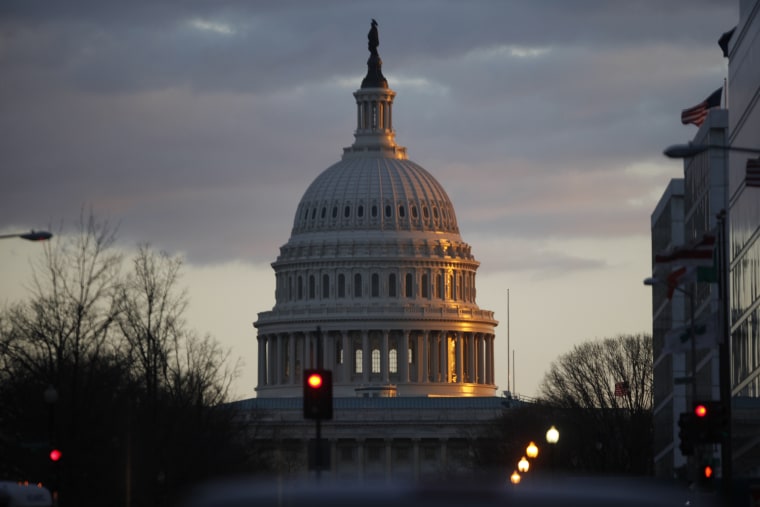To say that the Republican-led House is doing absolutely nothing isn't entirely fair. The GOP majority isn't just sitting around, waiting for time to elapse; it's also approving tax breaks without paying for them.
The House voted Friday to make permanent a temporary tax break that makes it easier for businesses to invest in new equipment, one of many expired tax breaks that Congress must deal with by the end of the year. The tax break allows businesses to more quickly write off the costs of new equipment, making it popular among business groups. But the White House has threatened a veto because the bill would add $287 billion to the budget deficit over the next decade.
Final vote was 258 to 160. The roll call is online here.
At issue is a policy called "bonus depreciation," which was part of the bipartisan, 2008 economic stimulus measure, and which allows companies to quickly write off the cost of capital investments. The idea is to encourage businesses to buy property and/or equipment, knowing it can deduct more of the cost up front under the tax break.
The policy expired at the end of 2013. House Republicans don't only intend to bring it back, they also want to make it permanent, along with a handful of related tax measures, which combined cost about $287 billion over the next decade.
And how, pray tell, do GOP lawmakers intend to pay for this? That's the amazing part -- they don't even bother to try. When Democrats want to invest in infrastructure and jobless benefits, Republicans insist every penny be offset, but when the issue is permanent tax breaks, money is no object.
It fell to Rep. Sandy Levin (D-Mich.), the ranking member of the House Ways and Means Committee, to explain, "What's being done here is totally inconsistent."
Which is both true and an understatement.
One can make the case that there's an economic benefit associated with extending this tax break. But (a) it's a fairly modest benefit, with roughly 20 cents of stimulus on the dollar; and (b) there's an even greater economic benefit tied to Democratic priorities. So why does one have to be paid for and not the other?
Apparently because the House GOP majority says so.
The argument from Republicans is pretty straightforward: if the corporate tax break helps even a little, Congress should pass it and give the economy a boost, regardless of the deficit. But as we've discussed before, jobless aid helps the economy, too. So does investing in infrastructure. And food stamps. And education. And aid to states to prevent public-sector layoffs for teachers and first responders.
It's a dynamic so familiar, it's practically a cliche, but let's go ahead and make the point anyway: congressional Republicans pretend to care deeply about the deficit, right up until tax cuts are on the table, at which point their deeply held principles fly out the window.
It's a simple rule: if Democrats want to invest in the public, the deficit is paramount. When Republicans want to pass a tax break, the deficit is irrelevant.
Of course, the larger context makes the policy move look worse, at least for those paying attention. The Republicans who say $3.4 billion for the border crisis is too much are literally the same Republicans who have no problem approving tax breaks that cost 84 times as much money.
It's about priorities, I guess.
